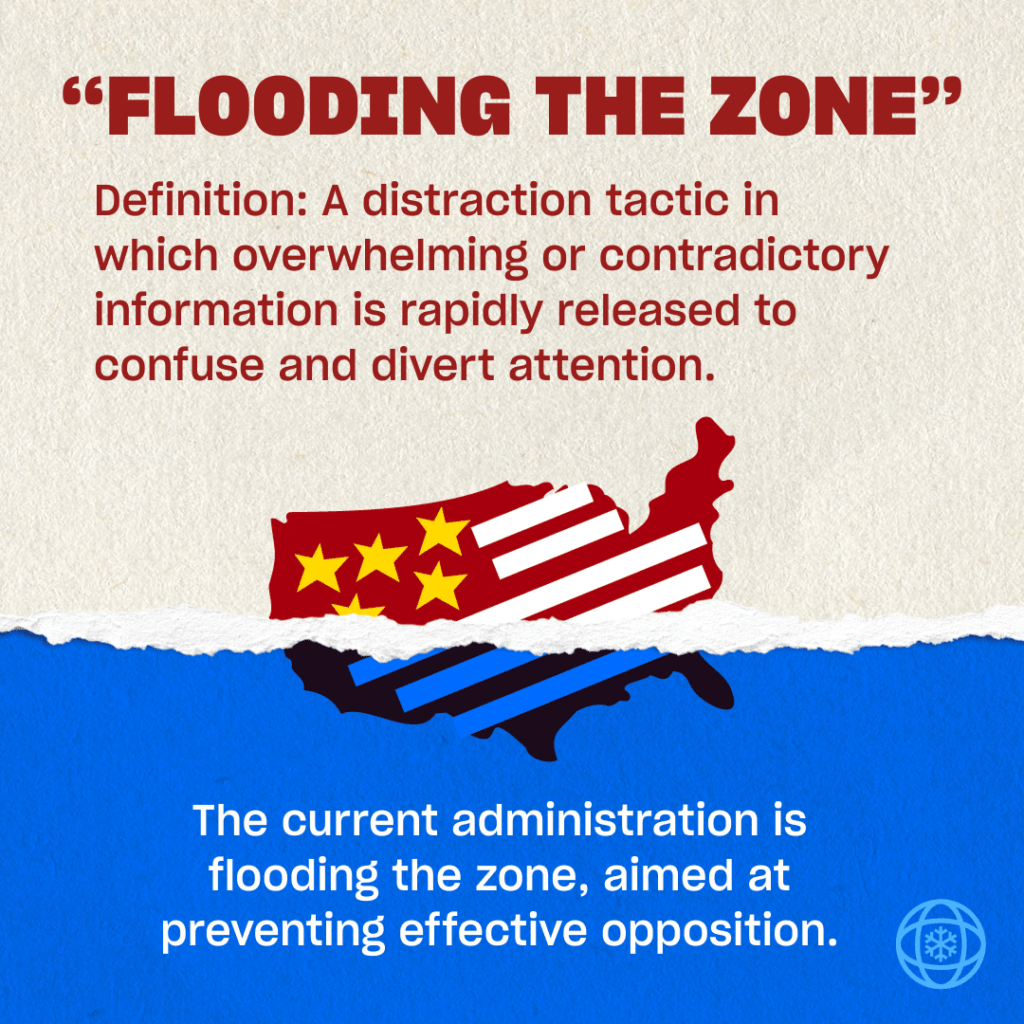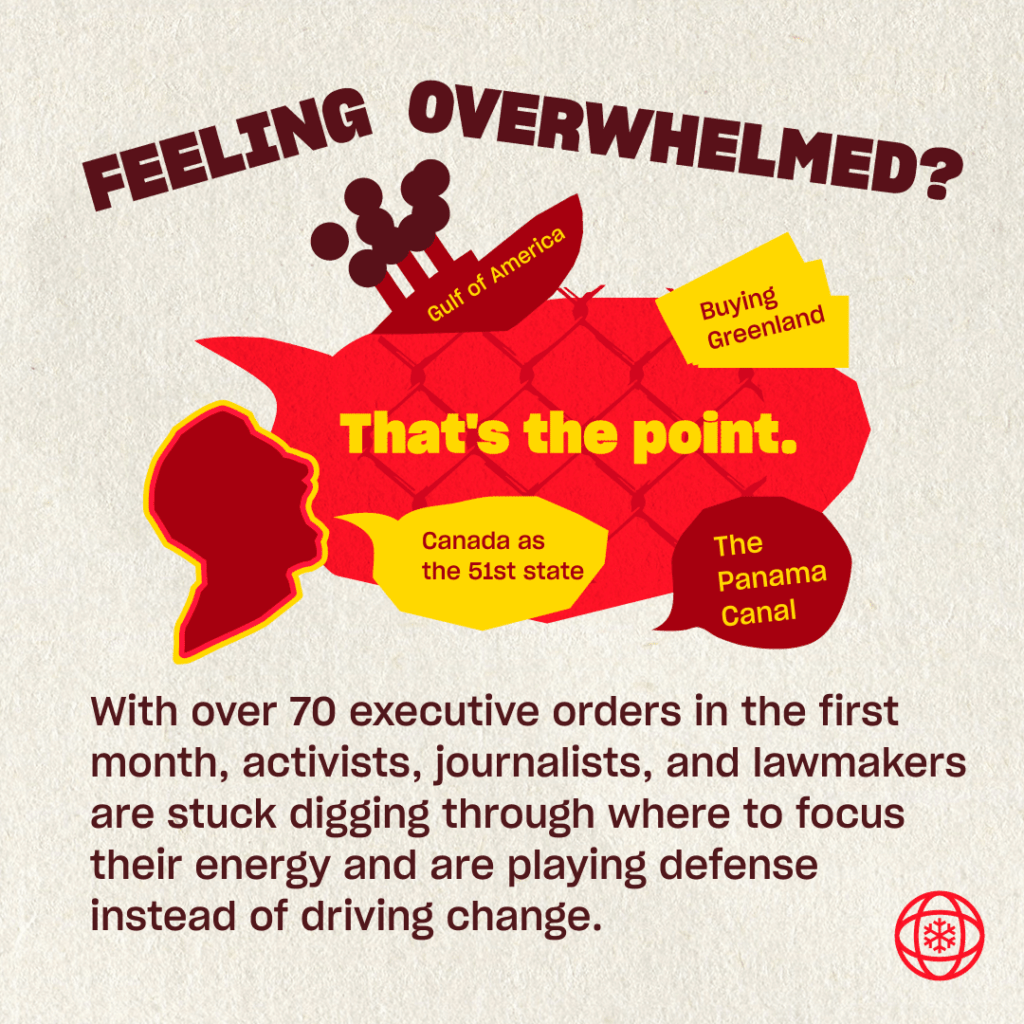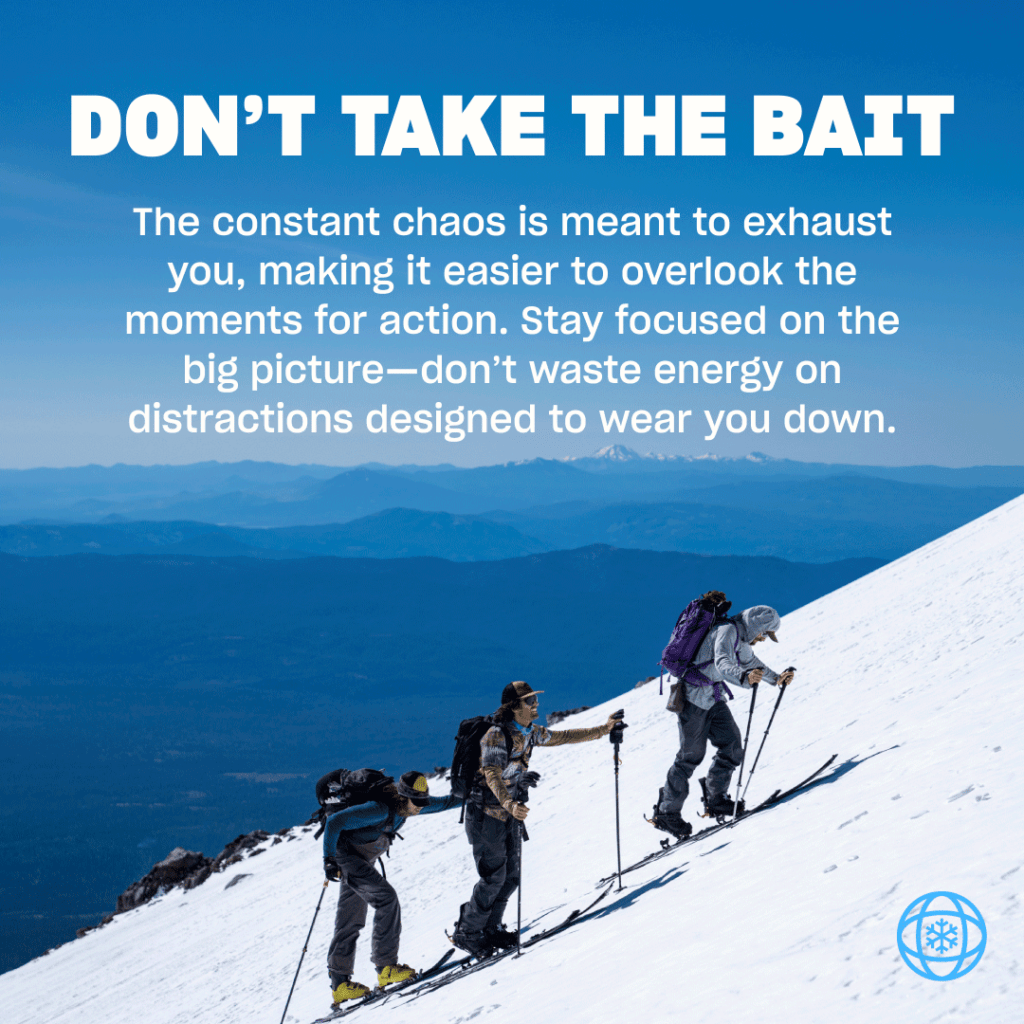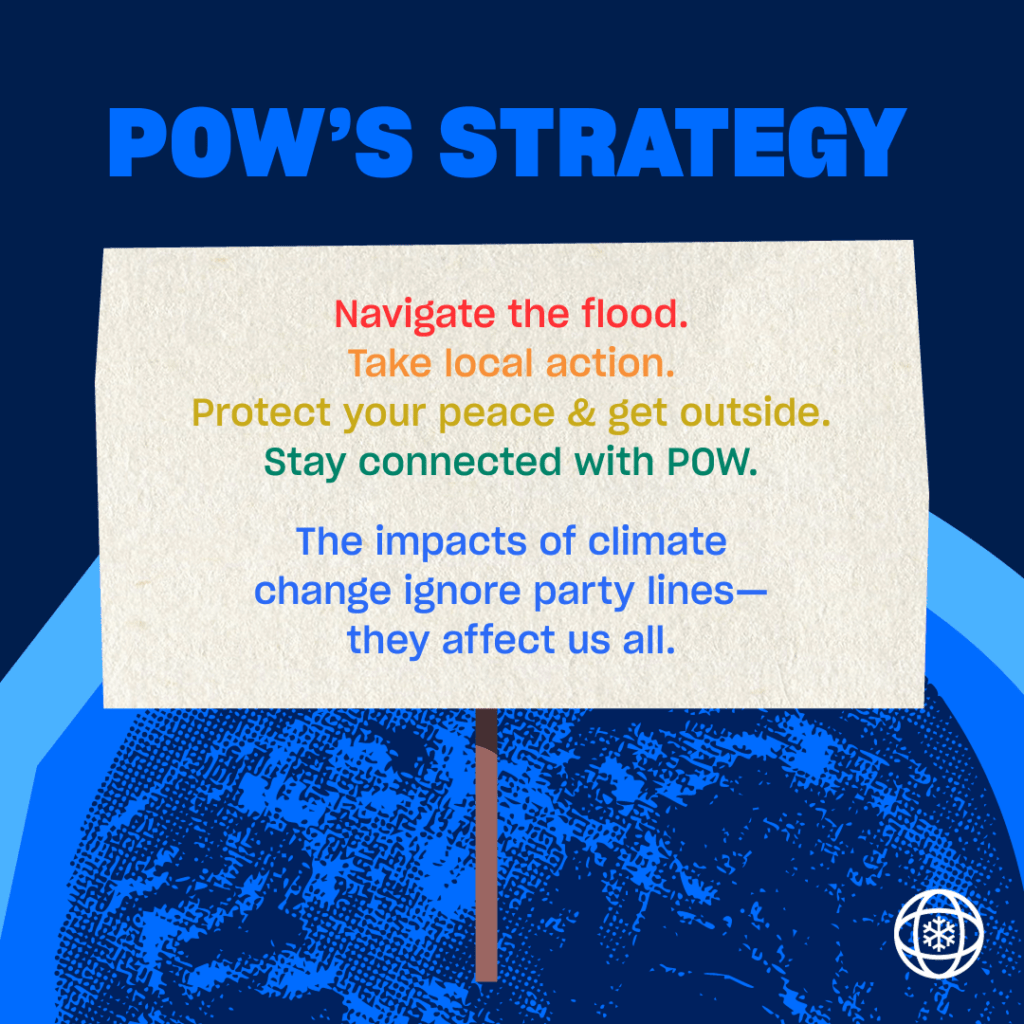The Distraction Problem
Photo by Creative Alliance member Jake Burchmore
Every day, every hour, sometimes every minute, it feels like there is a new shocking headline rolling through our news feeds. A disruptive policy change or a statement so absurd it dominates social media for 48 hours. It’s enough to make you want to smash your phone on a rock and disappear into the backcountry.
This is not an accident.
Distraction is a political tactic that weaponizes new information to make public disagreement fractured and incoherent. When confronted with major policy changes, the more new information we are flooded with, the more we have to actively focus.
History has shown us that keeping the public overwhelmed and exhausted is a strategy.
“Flood the zone.”
“Shock and awe.”
“Muzzle velocity.”

Call it what you want—the effect is the same. Push so much new information that it is impossible to keep up.
Remember when the administration suggested buying Greenland? Or renaming the Gulf of Mexico? Or claiming Canada as the 51st state?These ideas may have seemed outlandish, but they served a purpose: shifting focus away from rollbacks on environmental protections, public land sales, attacks on clean energy, dismantling DEI programs, and massive government firings.

There have been more than 70 executive orders in the past month alone. Each one steals attention from the last. It’s exhausting—and that’s the point. It’s designed so that we miss the bigger picture on things like:
- The U.S. pulled out of the Paris Climate Agreement.
- The firing of countless government employees.
- The Administration pulled funding from the UN Green Climate Fund.
- Federal funding for solar energy was slashed, and permits for wind power were paused.
- Public land protections were stripped away.
- Vast new fossil fuel developments were approved.
- Promises were made to roll back the Inflation Reduction Act.
While we’re focused on one drastic change, another policy shift happens behind the scenes. The result is a relentless cycle of distraction, making it difficult to organize effective opposition.
What they don’t want you to notice is that the cost of solar has dropped 80% in the last 15 years. More people than ever are recreating on public lands, and public support for climate action is rising. The momentum is on our side.
If we’re constantly reacting, we’re not organizing. If we feel powerless, we’re less likely to fight back.
Don’t Take the Bait.

When confronted with major policy changes, the flood of new information demands our focus. But if we establish our values up front, we can stay clear on our priorities and rise above the distraction.
Not everything making headlines deserves our energy. That doesn’t mean ignoring the news—it means filtering out the noise. Many policies won’t stick—some won’t be implemented, others are symbolic, and many are tied up in courts. Meanwhile, the Administration’s approval sits at 44%, and Congress is at just 29%.
So, what can we do now?
Stay focused and pick a better line.
We’re going to stay engaged, navigate the flood, and take action locally. Climate impacts affect red and blue states alike, and change happens fastest at the local level.

We’re here to help you cut through the noise. POW will focus on real threats, take action when it matters, and know when it’s time to log off and get outside. Let’s keep our eyes on the horizon and keep fighting to protect public lands, drive the clean energy transition, and ensure a livable future.

Author: Alex Lee
Alex Lee is an environmental philosopher, writer, fisherman, gardener, backcountry advocate, skier, and wanderer of wild places. Alex studies moral obligations and environmental problem solving as Associate Professor of Philosophy at the Institute of Culture and Environment at Alaska Pacific University in Anchorage, Alaska. His research focuses on applied environmental philosophy, climate change, and conservation policy. He earned his Ph.D. in environmental ethics from […]
